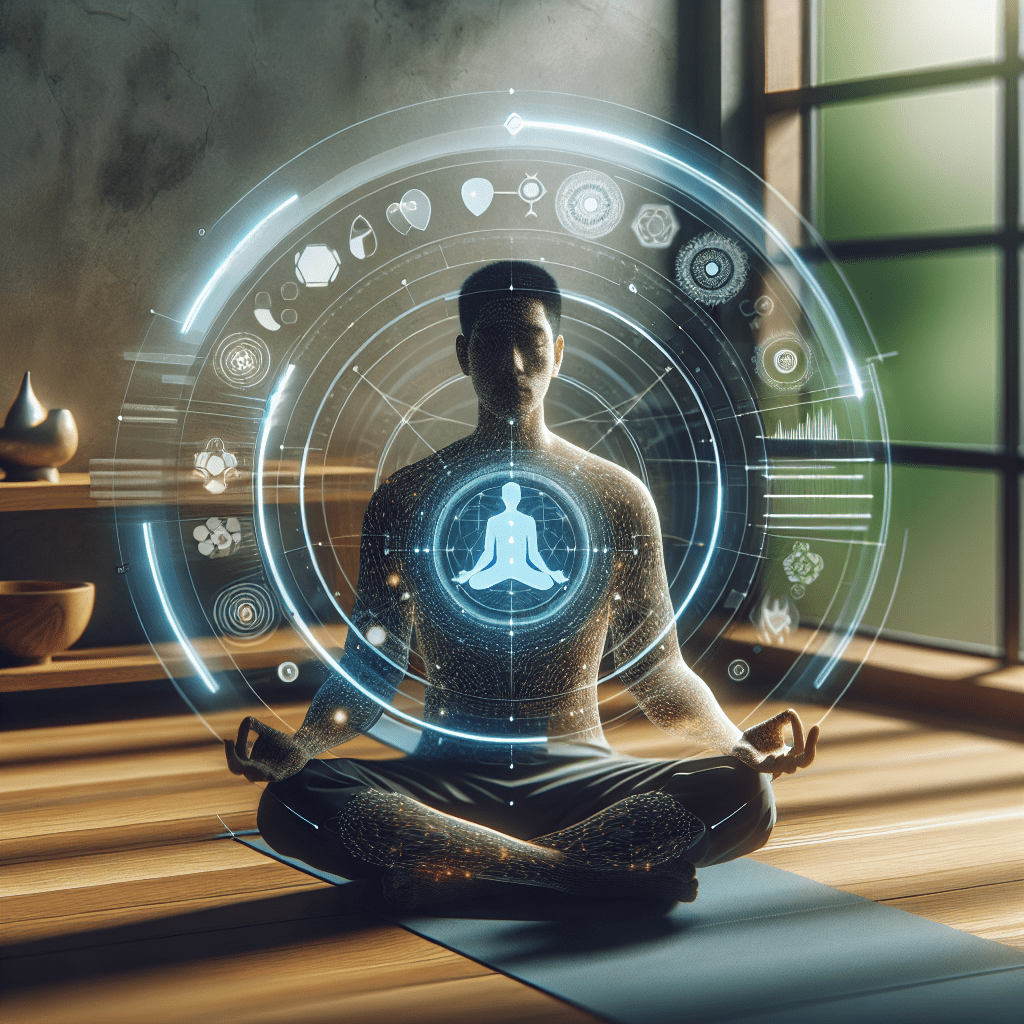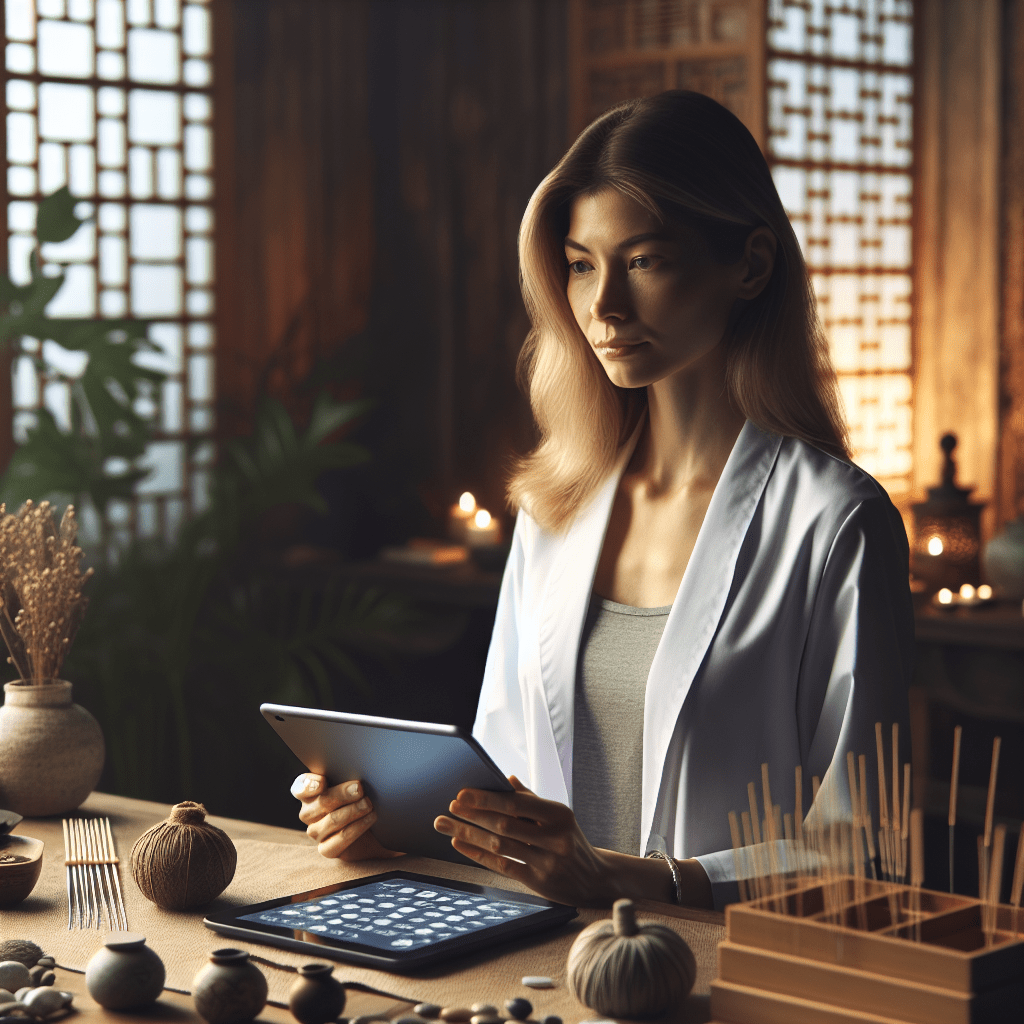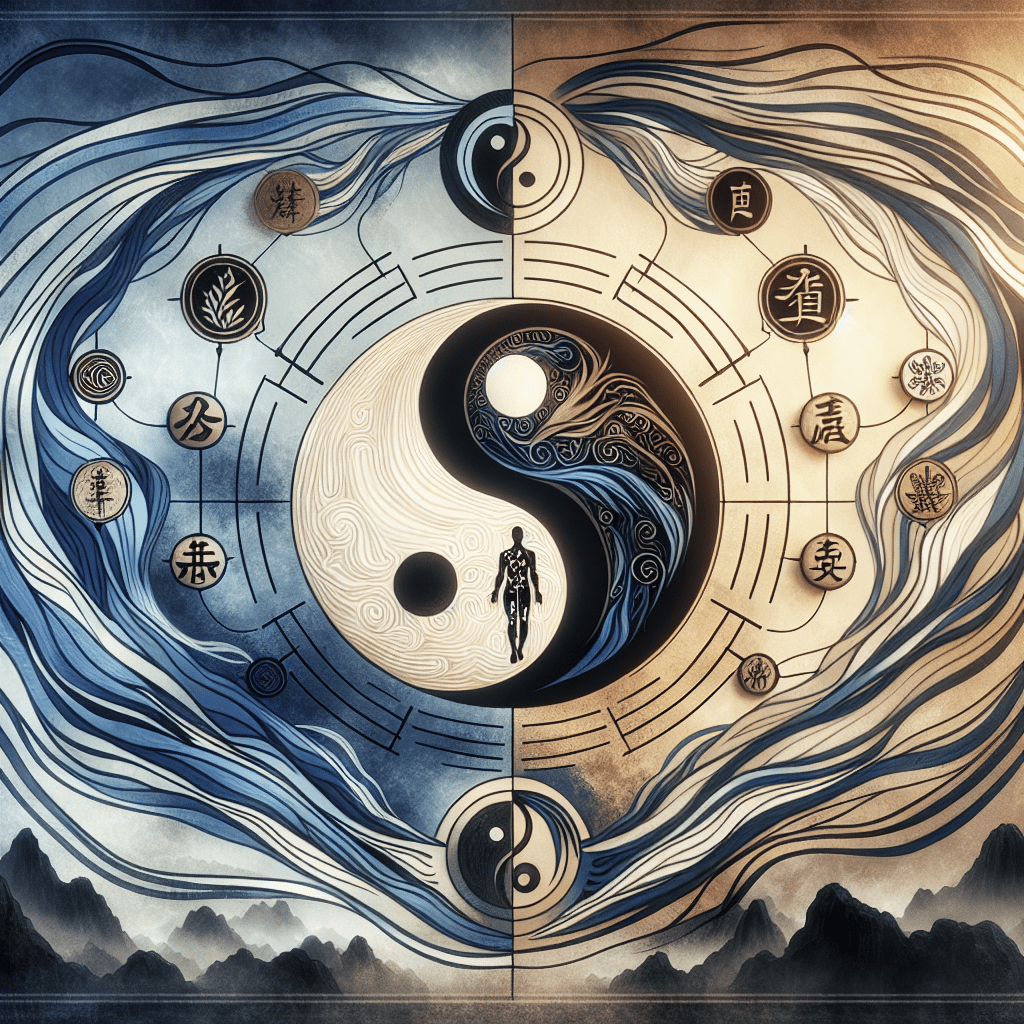Imagine waking up to a notification on your smartwatch: “Your Qi seems imbalanced today—try some ginger tea and gentle stretching to restore harmony.” Sounds like science fiction? Not anymore. The world of AI health coaches is evolving rapidly, and they’re beginning to speak the language of ancient healing traditions.
In our tech-driven world, AI health coaches have emerged as personal wellness guides, using algorithms to track everything from our steps to our sleep patterns. These digital companions analyze our health data, spot trends, and offer personalized recommendations to improve our well-being. What’s fascinating is how these cutting-edge technologies are now embracing wisdom that dates back thousands of years.
At HerbalsZen, we’ve long believed that true wellness comes from bridging ancient Eastern healing philosophies with modern innovations. The marriage of AI health coaches with Traditional Chinese Medicine (TCM) principles represents exactly the kind of harmonious integration we champion—where timeless wisdom meets technological advancement.
When East Meets Tech: Understanding Qi in the Digital Age
Traditional Chinese Medicine stands on the fundamental concept of Qi (pronounced “chee”)—the vital life force that flows through pathways called meridians in our bodies. When Qi flows smoothly, we experience health and vitality. When it’s blocked or imbalanced, illness can result. For millennia, TCM practitioners have diagnosed imbalances by observing subtle cues in the body—the complexion, the tongue, the pulse, and even emotional states.
“Qi is not just an abstract concept,” explains a TCM practitioner. “It’s something tangible that affects every aspect of our health, from physical function to emotional well-being. The beauty of TCM is its holistic approach, seeing the body as an interconnected system rather than isolated parts.”
This holistic perspective forms the core of HerbalsZen’s philosophy. Rather than treating symptoms in isolation, we focus on restoring balance through natural methods. Our approach emphasizes herbal remedies, dietary adjustments, and lifestyle modifications that work with the body’s innate wisdom rather than against it.
The concept of balance is central to both TCM and our modern understanding of health. Just as TCM seeks to balance yin and yang energies, contemporary wellness approaches recognize the importance of balancing work and rest, activity and recovery, stimulation and calm. This parallel makes the integration of AI and TCM not just possible but powerfully synergistic.
Can Algorithms Understand Ancient Wisdom?
Here’s where things get interesting. Can an AI health coach—built on data, algorithms, and machine learning—really understand something as nuanced and subtle as the flow of Qi? The answer might surprise you.
Imagine this conversation:
Ancient Healer: “I can feel that your liver Qi is stagnant, causing this headache and irritability.”
AI Health Coach: “I’ve noticed patterns in your sleep data, heart rate variability, and reported symptoms that indicate stress affecting your liver meridian. This aligns with what TCM would identify as liver Qi stagnation.”
While the AI doesn’t literally “feel” the Qi, it can detect patterns in biometric data that correlate with traditional diagnoses. The AI health coach might notice that your heart rate variability decreases, sleep quality diminishes, and stress hormones increase during certain seasons or situations—all indicators that would lead a TCM practitioner to similar conclusions about your Qi balance.
EASTCHI AI, HerbalsZen’s flagship product, exemplifies this fusion by analyzing constitutional types through the Five Element Theory of TCM. This ancient framework categorizes people according to five elements—Wood, Fire, Earth, Metal, and Water—each with distinct characteristics and tendencies toward specific imbalances. By processing user inputs about physical traits, emotional tendencies, and health patterns, the AI can determine which element predominates in a person’s constitution and provide customized recommendations.
The Benefits of AI-Enhanced TCM
The integration of artificial intelligence with Traditional Chinese Medicine creates a healthcare approach that combines the best of both worlds, offering personalized insights that neither could provide alone.
The integration of AI and TCM offers several compelling advantages that neither approach could achieve alone:
1. Enhanced Pattern Recognition
TCM diagnosis relies heavily on pattern recognition—observing connections between seemingly unrelated symptoms. AI excels at precisely this kind of analysis, processing vast amounts of data to identify subtle correlations.
“AI can analyze thousands of tongue images to identify patterns invisible to the human eye,” notes a researcher in AI-assisted TCM. “It can correlate these observations with other health data to provide insights that might take a human practitioner decades of experience to develop.”
2. Personalized Treatment Plans
Imagine your AI health coach notices that your sleep quality decreases whenever you eat certain foods. It cross-references this observation with your constitutional type based on Five Element Theory and suggests specific herbs known to restore balance for your element.
For instance, if EASTCHI AI identifies you as a Wood constitution person experiencing stress, it might recommend chrysanthemum tea and suggest foods that support liver function—all based on real-time analysis of your health data combined with TCM principles.
3. Increased Accessibility
Traditional Chinese Medicine requires years of study and practice to master. By encoding this knowledge into AI systems, more people can benefit from its wisdom without needing to become experts themselves.
“The beauty of AI health coaches is that they democratize health knowledge,” says a digital health expert. “Someone in a rural area without access to a TCM practitioner can still receive guidance based on these principles through their smartphone.”
4. Continuous Monitoring and Adaptation
Unlike a practitioner you might see once a month, an AI health coach can continuously monitor your health patterns and adjust recommendations accordingly. If a particular herb isn’t producing the desired effect, the AI can suggest alternatives based on your response.
Consider this scenario: During spring, when Wood energy rises according to TCM, your AI health coach might notice increased irritability and tension in your biometric data. It could then recommend foods that soothe the liver, suggest appropriate exercise intensity, and even adjust your supplement recommendations—all tailored to your specific constitution and current state.
The Philosophical Foundations: Ancient Wisdom Meets Modern Analysis
When ancient wisdom and modern technology converge, we discover that traditional healing systems contain sophisticated understandings of human health that complement our scientific approaches.
The integration of AI and TCM represents more than a technological advancement—it’s a philosophical reconciliation. TCM emerged from careful observation of natural patterns over thousands of years, while AI relies on data-driven analysis and mathematical models. Yet both approaches seek to identify patterns and restore balance.
The Five Element Theory illustrates this connection beautifully. This ancient framework describes how Wood, Fire, Earth, Metal, and Water elements interact in cycles of generation and control, creating a dynamic balance in nature and the human body. Each element corresponds to specific organs, emotions, seasons, and tastes.
EASTCHI AI applies this theory by analyzing user inputs to determine their dominant elemental constitution. Someone with a predominant Fire element might receive different dietary recommendations than someone with a Water constitution, especially during seasonal transitions that TCM considers particularly important for maintaining health.
“What’s remarkable about the Five Element Theory is how closely it aligns with modern understandings of biological rhythms and systemic interactions,” observes a researcher in integrative medicine. “The ancients were describing complex feedback loops and homeostatic mechanisms using the language and metaphors available to them.”
This perspective allows us to appreciate TCM not as mystical or superstitious but as a sophisticated system of understanding human health developed through empirical observation—much like modern science, but with different tools and terminology.
The Future of Holistic Health Technology
As AI continues to evolve, its capacity to integrate with traditional healing systems will only deepen. We’re moving toward a future where your AI health coach might suggest acupressure points based on real-time energy patterns detected through wearable sensors, or recommend specific qigong exercises tailored to your constitutional type and current Qi imbalances.
At HerbalsZen, we envision EASTCHI AI evolving to incorporate more sophisticated biometric inputs, seasonal adjustments based on local conditions, and even community features that recognize the importance of social connections in overall wellness—a principle long emphasized in Eastern healing traditions.
This fusion represents a more integrative healthcare model that respects both scientific advancement and traditional wisdom. Rather than positioning these approaches as competitors, we see them as complementary paths to the same destination: optimal health and wellbeing. Recent scientific research is increasingly validating the effectiveness of these ancient approaches.
“The most exciting aspect of this integration is that it helps us rediscover the wisdom embedded in traditional practices while validating and refining them through modern analytical methods,” says a proponent of integrative medicine. “It’s not about choosing between tradition and technology, but about creating something greater than either could be alone.”
A Harmonious Future
Can your AI health coach read your Qi? Perhaps not in the way a TCM master with decades of experience might. But through clever analysis of the digital footprints of your health—sleep patterns, heart rate variability, activity levels, and self-reported symptoms—it can identify patterns that correlate remarkably well with traditional diagnoses.
The fusion of AI health coaches with Traditional Chinese Medicine represents a powerful convergence of ancient wisdom and cutting-edge technology. It honors the holistic, personalized approach of Eastern healing traditions while leveraging the analytical capabilities of modern computing to make these insights more accessible and adaptable than ever before.
At HerbalsZen, this integration embodies our core philosophy: that true health comes from honoring time-tested wisdom while embracing innovation. Through EASTCHI AI, we’re bringing this vision to life, creating a platform that helps people understand their constitutional nature through Five Element Theory and receive personalized guidance that respects both their unique needs and the seasonal rhythms of nature.
As we continue this journey of integration, we invite you to explore how ancient wisdom and modern technology can work together to create a more balanced, harmonious approach to health—one that reads not just your data, but the subtle patterns of your Qi.



